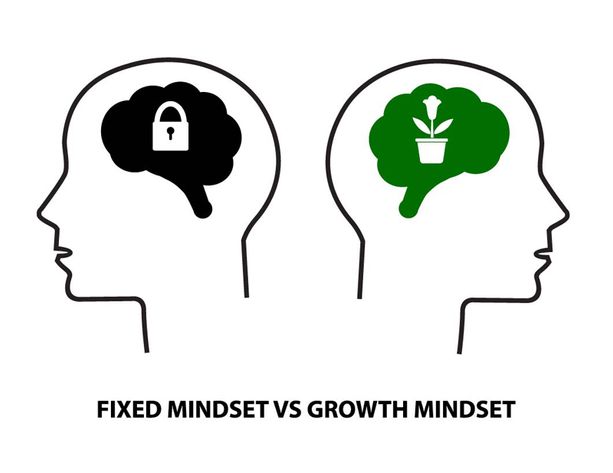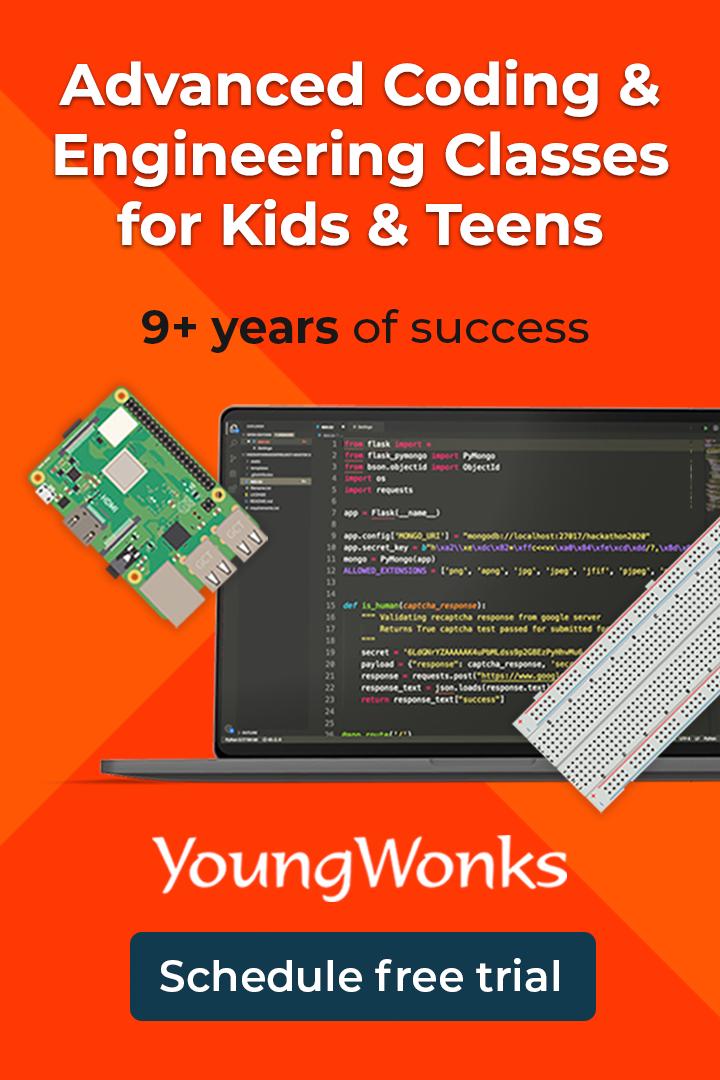Jun 12, 2018 By Team YoungWonks *
The growth mindset is said to have a big impact on teaching and learning, as it leads to greater student engagement and thus, better and more student achievements. What makes the growth mindset so effective? The answer to this question lies in knowing what the growth mindset is all about. This blog then aims to decode what the growth mindset is and its impact on students in particular.
What is Growth Mindset?
A growth mindset is a type of mindset (attitude/ viewpoint), where a person (in this case, a student) believes that his/ her talents and abilities can be developed through effort, good teaching and persistence. The term growth mindset was coined by Dr Carol Dweck and she addresses the subject in her 2006 book Mindset: The New Psychology of Success. Dweck, who has worked extensively in the fields of social and developmental psychology, traces her work to more than three decades ago when she and her colleagues began studying students’ attitudes about failure. She realised that when students believed they could get smarter and stronger with greater effort, they’d put in the extra time and effort, and that more often than not led to higher achievements.
Of course, having this doesn’t mean that everyone is the same or that everyone is a genius, but it is the belief that anyone can get smarter if he/ she works towards it. This mindset or approach supports the view that students can acquire any ability as long as they make the effort and have the right guidance.
Avoiding the Fixed Mindset
Fixed mindset, also coined by Dr Dweck, is the opposite of the growth mindset. This is where students believe their basic abilities, their intelligence, their talents, are fixed traits. They think that they have a certain amount of a particular talent/ skill and that it can’t really be be enhanced. This is a rather limiting approach as it subscribes to the view that one’s abilities are innate and that failures are due to an in-born lack of basic abilities. So telling children they are smart (or not smart, for that matter) encourages a fixed mindset, whereas praising hard work and effort cultivates a growth mindset.
Students with a fixed mindset get stuck in moulds of their own making and a common result is stagnation.
Having the Right Mindset
How does one’s mindset figure in the scheme of things? To begin with, it’s extremely important for students to have the right mindset for it will set the pace for their development. One’s mindset will not only impact one’s academic life but also one’s hobbies, other non-academic pursuits and an overall approach to life. So in a way, our professional and personal lives - and ultimately our happiness - depends on our mindset. These mindsets typically manifest themselves in people at an early age and this is why teachers and parents should ideally foster the growth mindset right at the start. Often the fixed mindset is encouraged unconsciously, so one has to watch out for instances where such a thing might happen. So how does one do that?
Vishal Raina, founder and instructor at YoungWonks, points out that at their after-school coding program, the faculty consciously works towards helping its students ditch the fixed mindset in favour of growth mindset. “One way to do so is to identify where your kid - the student - may have fixed mindset tendencies so that we can work on those and help him/ her become more growth-oriented. One needs constant support for such a thing and at YoungWonks, we offer a positive environment that helps each child realise and hone his/ her skill set, especially in the STEM areas. Our focus lies in showing them how to work hard and in offering them appropriate guidance every step of the way. We teach our students to welcome challenges and view failures as lessons one can learn from. Consistent self-assessment is also encouraged,” he says.
Aligning well with the growth mindset is their enquiry-based learning approach; ditto for factoring in each student’s current strengths and weaknesses, so the student can work towards self-improvement in those areas. “At YoungWonks, we are firm believers of the growth mindset. So you can be anyone you want to be and we will help you become this person,” Raina says.
Given that our actions are determined by our attitude, it is not incorrect to state that our mindsets go on to shape our lives. This makes having the right mindset extremely important in the larger scheme of things.
Takeaways of the Growth Mindset
While we know by now what the growth mindset broadly entails, it’s imperative to look at its major takeaways.
a. Firstly, people with a growth mindset have a world of possibilities before them. But they choose the things that they love and wish to do. This in turns gets them better results since it is well known that loving something makes one strive to do a better job of it. In her book, Dweck points out how growth-minded athletes, CEOs, musicians, and scientists all love what they do and how this is evident in their work.
b. The growth mindset tells one to focus on learning and not the outcome/ achievement, per se. This means that a person with a growth mindset will be journey-oriented, instead of focusing on the destination. The self-paced learning model at YoungWonks, Raina says, stems from this realisation. “This ensures that no student is rushed from one level to another; it’s about learning and enjoying the process of self-improvement,” emphasises Raina.
c. A growth mindset believer will not judge, but teach instead. Parents, teachers and coaches in particular should make note of this. “YoungWonks instructors don’t compare the students to one another; you are working hard to better yourself,” Raina says.
d. The best thing about growth mindset is that one can switch to it at any point in time. Of course, it is always better to have a positive, healthy approach to life from early on; but even if one has been reeling under a fixed mindset, it isn’t too late to make the change.
e. You are what you think. So why not think better and aim higher? “With a growth mindset, your interests can become your strengths; you can thus enhance your abilities - be it a creative, physical or mental ability. So while employ the growth mindset to teach our students coding, it’s a great attitude to have in other spheres too,” Raina says.
In the video below, you'll find YoungWonks instructor Suchin Ravi in conversation with YoungWonks content editor Vidya Prabhu, as they talk in detail about the Growth Mindset and its benefits.

Cultivating a Growth Mindset through Coding
In our rapidly evolving digital world, nurturing a growth mindset in young learners is more important than ever. At YoungWonks, we emphasize the significance of adopting a growth mindset through our Coding Classes for Kids, where we introduce students to the dynamic world of programming. Our specially designed Python Coding Classes for Kids help foster resilience and problem-solving skills, encouraging students to view challenges as opportunities for growth. Similarly, our Raspberry Pi, Arduino and Game Development Coding Classes support hands-on learning, demonstrating how perseverance and creativity can turn ideas into innovative projects. By integrating a growth mindset into our curriculum, we empower students to not only excel in coding but to thrive in all areas of their lives.
*Contributors: Written by Vidya Prabhu; Photo by Shutterstock
